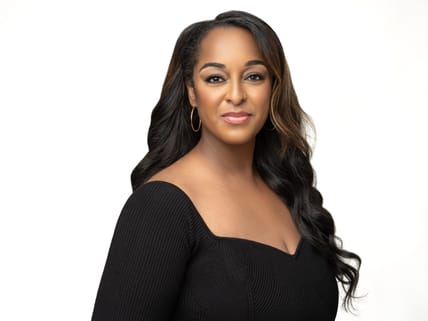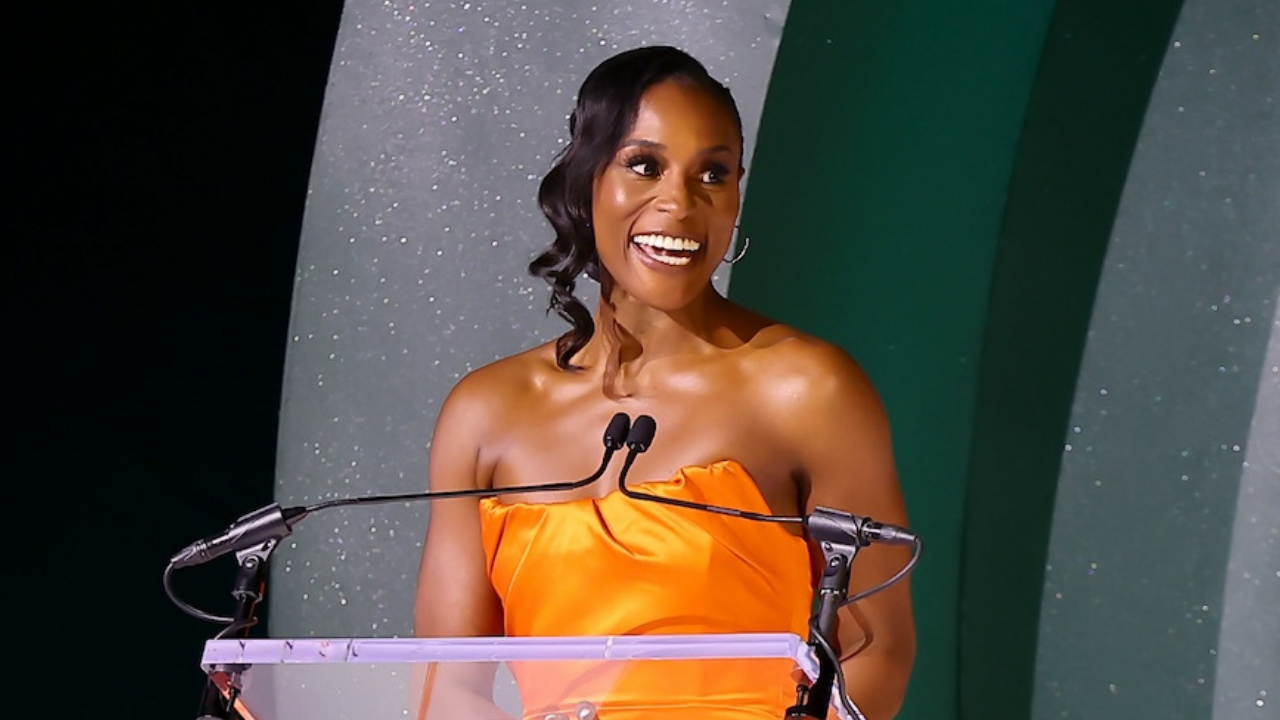Editor’s note: The following article is an op-ed, and the views expressed are the author’s own. Read more opinions on theGrio.
It’s official—the people have fallen in love with “Forever,” the new Netflix series from acclaimed showrunner Mara Brock Akil. A coming-of-age love story centered on two Black teens in Los Angeles, “Forever” is more than just a binge-worthy series—it’s a moment made for the culture.
It’s hard to describe why this show makes many of us feel so emotional and seen, in ways that no other TV show ever has. But I will do my best to put words to a viewing experience I, personally, never wanted to come to an end, and a storyline that made me interrogate every life transition up to now and appreciate what it takes to build one on our terms.
While “Forever” may be a teenage love story, from the moment the cameras start rolling, the show instantly sets the stage for a different and disruptive representation of the Black family in America.
Justin, played by the soulful and emotionally deep Michael Cooper Jr, gets an invite to a NYE party last minute as he struggles to complete a school assignment—hints of his ADHD are strewn across the room.
As Justin steps out of his bedroom into the sprawling upscale home of his clearly well-off family, he asks for permission to go to the party and gets expected pushback from his Mom, Dawn (brought to life by Karen Pittman who absolutely kills the role)— but instead of typical fallout— Justin’s Dad, (played by the incredible Wood Harris— another star who shines in the series), challenges Dawn, then gives his son the go ahead to hit the party— with a pep talk about getting consent and declining wild white girls.
It’s at that very party where (light spoiler), Justin will meet Keisha Clark (perfectly played by the fierce Lovie Simone), his classmate from elementary school, who may have grown up on the different side of the tracks in a tougher neighborhood but is academically gifted and has track talent. In this mostly white teen party, sparks fly between them, carrying us forward into a rollercoaster of feelings, f-ups, and fawning over each other that makes “Forever” one of the most bingeable shows out right now.
One scroll on Threads, and you see everyone from millennials to Gen X and even the youngins, talking about how “Forever” is such a refreshing and real show that brings out nostalgia and memories of trying to find your way in love and life.
Non-Black TV executives should understand— this is the kind of TV Black audiences want to see. We want diverse Black experiences portrayed with excellent casts, with respected veterans and fresh talented faces who can act and aren’t just famous.
We want Black characters with a range of experiences that reflect our own, whether it’s trips to Martha’s Vineyard, riding the bus miles to get to school in hopes we get into Howard, or visiting the restaurant our Daddy owns for date night.
The convos we see in “Forever” are real conversations that happen in Black households— whether it’s better to go to an HBCU first and save a PWI for graduate school, what it means to be “fast” or respectable and how it’s performed, what healthy partnership looks like between Black men and women in marriage, how Black boys show up for each other as true friends, and how Black mothers and teen daughters can love each other through the toughest moments.
What’s remarkable is how “Forever” avoids trauma porn or tired tropes, opting instead to weave love and care woven into every detail of every episode.
We want portrayals of differences between Black working-class families and Black upper-class families that are honest without reducing them to warring stereotypes.
“Forever” does a great job of showing Black fathers who are solid, financially stable, emotionally wise, and still have swagger—a masculinity that we love (give Wood Harris his flowers!).
It also gives us a range of Black womanhood experiences without judgment— whether you’re a type-A mom insisting your son choose college or a mom working two jobs to ensure your daughter has a chance.
Of course, this is no surprise to fans of Mara Brock Akil. From “Girlfriends” to “Being Mary Jane,” Brock Akil has always been a storyteller who reaches deep into the hearts of her viewers— past the superficial to tell stories we sometimes are too afraid to give voice to; those deep, passionate, confusing (and sometimes dark) feelings of the human experience.
While not everyone may have read Judy Blume’s classic book “Forever…,” which the series is based on, Brock Akil gives a new generation a chance to experience the themes through eyes that have seen them.
Our young adults deserve a love story told the way “Forever” has told it. Frankly, it’s a story we all deserve no matter our age. “Forever” in its own way, is helping us fall in love with our own stories too.

Natasha S. Alford is the Senior Vice President of TheGrio. A recognized journalist, filmmaker, and TV personality, Alford is also the author of the award-winning book, “American Negra.” (HarperCollins, 2024) Follow her on Twitter and Instagram at @natashasalford.







